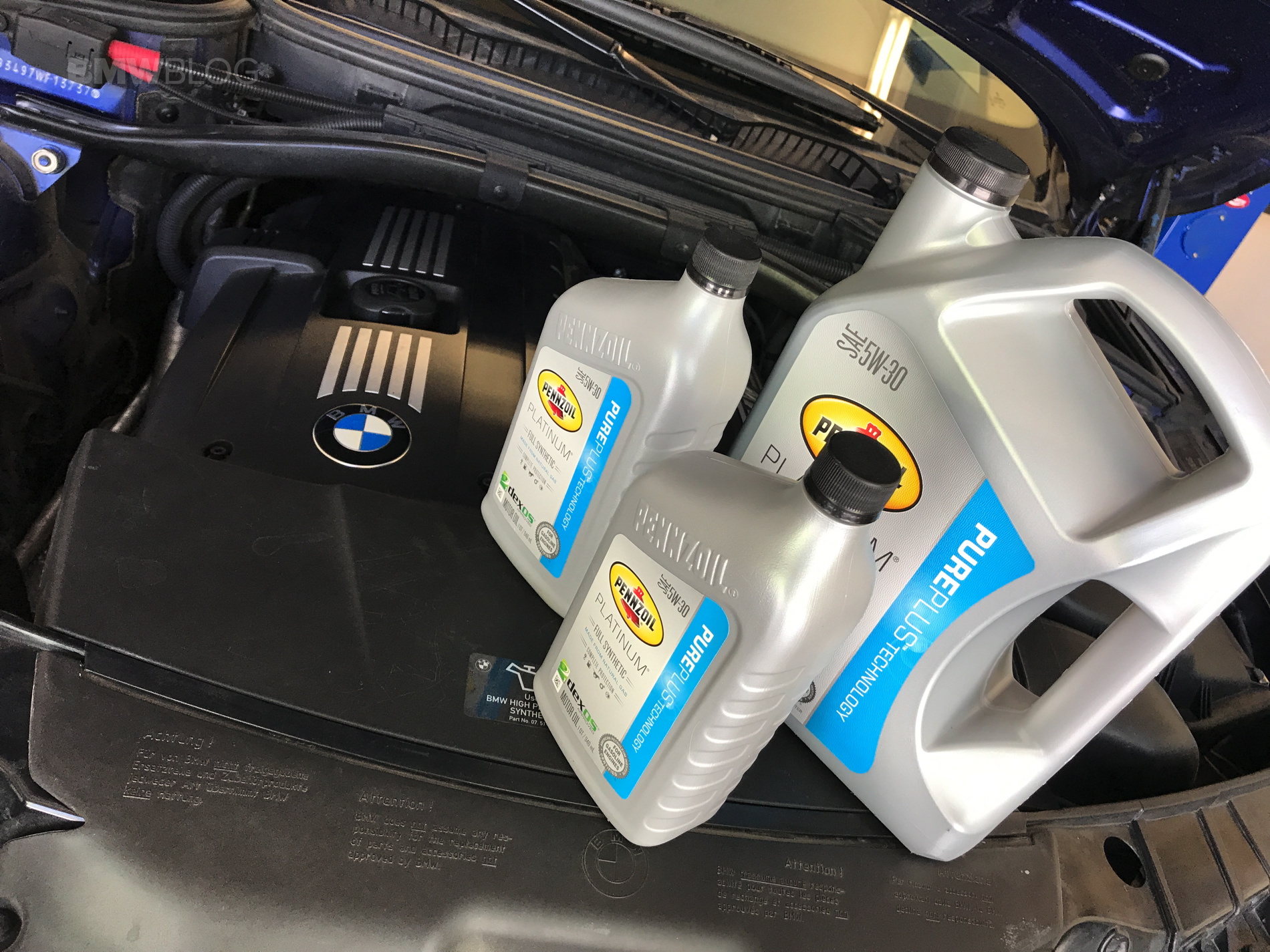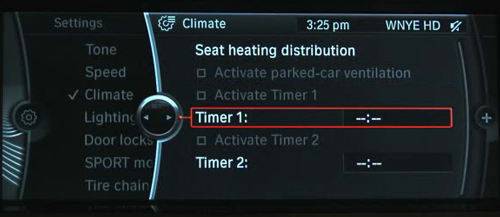As an Amazon Associate, I earn from qualifying purchases
The BMW X3 needs about 5.6 to 6.9 quarts of oil. This can vary depending on the engine type and model year.
Owning a BMW X3 comes with many perks, including a smooth ride and luxury features. Regular maintenance is crucial to keep it running efficiently. One common question for BMW X3 owners is about the oil capacity. Knowing how much oil your car needs is essential for proper maintenance.
It ensures your engine runs smoothly and lasts longer. Understanding the oil capacity can save you time and money. In this blog post, we’ll dive into the details of the BMW X3’s oil requirements. Keep reading to learn more about maintaining your BMW X3’s engine health.
Bmw X3 Oil Capacity
The BMW X3 is a popular luxury SUV known for its performance and reliability. A critical aspect of maintaining your BMW X3 is ensuring the engine has the right amount of oil. This blog section will focus on the BMW X3 oil capacity, which varies based on the engine type and year of manufacture.
Engine Types
The BMW X3 comes with different engine types. Each engine has its own oil capacity. Here’s a list of common engine types:
- 2.0L Turbocharged 4-Cylinder (B48)
- 3.0L Turbocharged 6-Cylinder (B58)
- 2.0L Turbocharged Diesel (B47)
- 3.0L Turbocharged Diesel (B57)
Oil Capacity Variations
The oil capacity for your BMW X3 depends on the engine type. Below is a table showing the oil capacities for different engines:
| Engine Type | Oil Capacity (Liters) |
|---|---|
| 2.0L Turbocharged 4-Cylinder (B48) | 5.0 Liters |
| 3.0L Turbocharged 6-Cylinder (B58) | 6.5 Liters |
| 2.0L Turbocharged Diesel (B47) | 5.5 Liters |
| 3.0L Turbocharged Diesel (B57) | 7.0 Liters |
Make sure to use the correct amount of oil for your engine. Overfilling or underfilling can cause damage. Always refer to your owner’s manual for specific details. Keeping your engine properly lubricated ensures a longer lifespan for your vehicle.
Recommended Oil Type
The BMW X3 is a high-performance vehicle. Using the right oil ensures its engine remains efficient and long-lasting. The recommended oil type for the BMW X3 is usually synthetic oil. This type of oil provides better protection, especially in extreme temperatures.
Synthetic Vs Conventional
Synthetic oil is engineered with chemical compounds. It offers better performance and protection than conventional oil. It lasts longer and reduces engine wear.
Conventional oil is derived directly from crude oil. It is less refined and can break down faster. This might lead to more frequent oil changes.
For the BMW X3, synthetic oil is highly recommended. It maintains engine efficiency and ensures smooth driving.
Viscosity Grades
Oil viscosity is vital for engine performance. The viscosity grade indicates how the oil flows at different temperatures. For the BMW X3, the recommended viscosity grades are:
- 5W-30: Suitable for most climates. Offers good protection at low and high temperatures.
- 0W-30: Ideal for colder climates. Ensures better performance during cold starts.
Using the correct viscosity grade ensures the oil flows properly. This reduces engine wear and improves fuel efficiency.
Always check your vehicle’s manual for the specific oil recommendations. This ensures your BMW X3 runs smoothly and efficiently.
Oil Change Frequency
Keeping your BMW X3 running smoothly requires regular oil changes. Understanding the right frequency for oil changes ensures your vehicle performs at its best. Let’s delve into how often you should change your oil.
Mileage Intervals
BMW recommends changing the oil in your X3 every 10,000 miles. This interval is based on normal driving conditions. Regular oil changes help maintain engine health and performance. Always refer to your owner’s manual for specific guidelines.
Driving Conditions Impact
Harsh driving conditions can affect oil change frequency. Frequent short trips can lead to more frequent oil changes. Driving in extreme temperatures also impacts oil life. Dusty environments may require you to change your oil more often. Pay attention to your driving habits and adjust accordingly.

Credit: www.youtube.com
Oil Change Process
Changing the oil in your BMW X3 is crucial for maintaining engine health. This guide will help you understand the oil change process. Follow these steps to ensure a smooth and efficient oil change.
Tools Needed
- Oil filter wrench
- Drain pan
- Socket set
- Funnel
- New oil filter
- BMW-approved engine oil
- Gloves
- Safety glasses
- Jack and jack stands (if needed)
Step-by-step Guide
- Warm up the engine: Run the engine for 5-10 minutes. This makes the oil flow easier.
- Park on a level surface: Ensure the car is on a flat surface. Use jack stands if you need to lift the car.
- Place the drain pan: Position the drain pan under the oil drain plug.
- Remove the drain plug: Use a socket set to remove the plug. Let the oil drain completely.
- Remove the old oil filter: Use the oil filter wrench to remove the filter. Allow any remaining oil to drain.
- Install the new oil filter: Apply a small amount of new oil to the gasket of the new filter. Screw it into place.
- Replace the drain plug: Once the oil has drained, replace and tighten the drain plug.
- Add new oil: Use a funnel to add the new BMW-approved engine oil. Refer to your owner’s manual for the exact oil capacity.
- Check the oil level: Use the dipstick to ensure the oil level is correct. Add more oil if needed.
- Dispose of old oil: Take the old oil and filter to a recycling center. Do not pour it down the drain.
Following these steps will help keep your BMW X3 running smoothly. Regular oil changes are essential for engine performance and longevity.
Signs Your Oil Needs Changing
Knowing the signs that your BMW X3 needs an oil change can help prevent costly repairs. Recognizing these signs ensures that your vehicle runs smoothly and efficiently. Let’s explore some key indicators.
Warning Lights
The most obvious sign is the oil warning light on your dashboard. This light indicates a drop in oil pressure. It means your engine might not be getting the lubrication it needs. Ignoring this light can lead to serious engine damage.
Engine Performance Issues
If your engine feels sluggish or you notice a decline in fuel efficiency, it might be time for an oil change. Old oil loses its effectiveness, making the engine work harder. This results in poor performance and higher fuel consumption.
Another sign is engine noise. Fresh oil lubricates engine parts, reducing friction. When oil is old, the engine may produce unusual sounds. Listen for any knocking or rumbling noises, as these can indicate that your oil is no longer doing its job.
| Sign | What It Means |
|---|---|
| Oil Warning Light | Low oil pressure |
| Sluggish Engine | Old oil, reduced lubrication |
| Engine Noise | Increased friction |
Paying attention to these signs can help keep your BMW X3 in top condition. Regular oil changes are crucial for maintaining engine health and performance.

Credit: www.bmwblog.com
Choosing The Right Oil Filter
Choosing the right oil filter for your BMW X3 is crucial. It ensures the engine runs smoothly. A good oil filter removes impurities and protects the engine. Let’s explore the options available and what you need to consider.
Oem Vs Aftermarket
Original Equipment Manufacturer (OEM) filters are made by BMW. They fit perfectly and meet all specifications. Using OEM filters ensures the best performance. On the other hand, aftermarket filters are made by other companies. They might be cheaper but vary in quality. Choosing a reputable brand is essential.
Filter Types
There are different types of oil filters available. The most common is the spin-on filter. It is easy to replace and widely used. Cartridge filters are another type. They are eco-friendly and require a bit more effort to install. Lastly, magnetic filters trap metal particles. They are great for keeping the engine clean.
Common Mistakes During Oil Changes
Changing the oil in your BMW X3 is essential for maintaining engine health. But many people make mistakes during this process. These mistakes can lead to engine problems and costly repairs.
Overfilling
Overfilling the oil in your BMW X3 is a common mistake. Too much oil can lead to increased pressure in the engine. This pressure can cause seals and gaskets to fail. As a result, you might experience oil leaks. Always check the dipstick while filling to avoid this issue.
Using Wrong Oil
Using the wrong type of oil is another frequent error. BMW X3 engines require specific oil types. Using the incorrect oil can affect engine performance. It can also lead to engine wear and tear. Always refer to your owner’s manual for the right oil type. This ensures optimal engine performance and longevity.
Expert Tips
Understanding how much oil the BMW X3 takes is crucial for its maintenance. Proper oil management keeps your engine running smoothly. Follow these expert tips to ensure your BMW X3 stays in top shape.
Maintaining Oil Quality
Maintaining oil quality is essential. Use the recommended oil type for the BMW X3. BMW recommends synthetic oil for optimal performance. Check the oil level regularly. Add oil if needed to keep the engine lubricated. Replace the oil every 10,000 miles or as specified in the owner’s manual. Use a high-quality oil filter for better oil flow and filtration.
Here’s a table to help you with the oil specifications:
| Oil Type | Viscosity | Capacity |
|---|---|---|
| Synthetic | 5W-30 | 5.3 quarts |
Extending Engine Life
Extending engine life involves more than just changing the oil. Avoid aggressive driving to reduce engine wear. Keep the engine cool by maintaining the cooling system. Check coolant levels and replace coolant as needed. Clean the air filters to ensure proper air flow to the engine. Regularly inspect and replace spark plugs if worn out. These steps reduce stress on the engine, extending its lifespan.
- Change oil every 10,000 miles
- Check coolant levels
- Clean air filters
- Inspect and replace spark plugs

Credit: www.youtube.com
Frequently Asked Questions
How Much Oil Does A BMW X3 Need?
A BMW X3 typically requires around 5.5 to 6.5 quarts of engine oil. Always check the owner’s manual for the exact amount.
What Type Of Oil Is Best For the BMW X3?
BMW X3 usually performs best with synthetic oil. BMW recommends oils meeting the specifications of BMW Longlife-01.
How Often Should I Change BMW X3 Oil?
It is recommended to change the oil in your BMW X3 every 10,000 miles or once a year. Always consult your owner’s manual for specific intervals.
Can I Use Regular Oil In BMW X3?
Using regular oil in a BMW X3 is not recommended. Synthetic oil provides better performance and protection for the engine.
Conclusion
Understanding how much oil your BMW X3 needs is crucial. This knowledge helps maintain your engine’s performance. Always check your owner’s manual for accurate information. Regular oil changes keep your vehicle running smoothly. Don’t forget to use the recommended oil type.
It ensures your engine lasts longer. Regular maintenance saves you time and money in the long run. Keep your BMW X3 in top shape with proper care. Happy driving!
As an Amazon Associate, I earn from qualifying purchases

